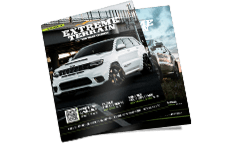2008 Toyota 4Runner: Aftermarket Parts and Accessories Vehicle-specific accessories and parts are integral for repair, enhancement, and customization. When considering 2008 Toyota 4Runner accessories and parts, there are several popular mods, each with their specific functions, materials, manufacturing processes, quality standards, compatibility considerations, and performance characteristics.
Engine Parts and Their Importance
Engine parts constitute the most vital category, with their main function being to ensure smooth running and optimal performance of your 4Runner. These include parts like timing belts, water pumps, spark plugs, oil filters, and fuel injectors, made mainly from hardened metals and alloys to withstand intense heat and tough working conditions. Parts are fabricated through high-precision casting and forging techniques in line with rigorous quality standards dictated by the original equipment manufacturer (OEM) as well as governing bodies like ISO and ASTM. Compatibility primarily depends on engine type and configuration, meaning the same engine part may not work for different models or even variations of the same model.
Impact of Suspension and Brake Parts
Suspension and brake parts greatly affect performance, ride comfort, and safety. Brake pads and rotors, suspension coils, shocks, and struts are typically made from high-tensile steel, cast iron or advanced composite materials. Manufacturing involves processes such as cold-forming, molding, and machining. These parts must adhere to safety and performance standards, with industry norms such as SAE J2530 for wheels and FMVSS 105 for brakes. Compatibility with your 2008 4Runner, its load-bearing capabilities and curb weight, is fundamental in choosing these parts.
Interior and Exterior Accessories for Customization and Protection
Interior and exterior accessories, ranging from seat covers and floor mats to custom grilles and body kits, offer personalization and protection. Materials of construction vary widely, from durable synthetic fabrics for interiors to impact-resistant polyurethane for exterior adornments. Manufacturing methods have evolved from basic sewing and shaping operations to complex molding, CNC machining, and 3D printing. Quality standards such as AATCC for colorfastness or FMVSS for lighting fixtures ensure longevity and legal compliance. Compatibility often pertains to aesthetic considerations and model-specific fitment.
Impact of Vehicle Age, Mileage, and Operation Conditions
Examining intangibles like vehicle age, mileage, operating conditions, and maintenance history have a significant impact on part selection and longevity. A low-mileage 2008 4Runner might benefit from performance upgrades, like high-flow filters or ECU tuning, while a high-mileage, well-serviced unit may need parts replaced due to natural wear and tear, like brake pads and timing belts. Conversely, a neglected vehicle might need a full restoration - necessitating a wide range of parts from various categories. Understanding these considerations equips you to make well-informed decisions regarding aftermarket parts for your 2008 Toyota 4Runner, maximizing performance, efficiency, and safety. By making educated selections, not only will you preserve your vehicle's integrity and longevity, you'll also save in long-term maintenance costs.

















